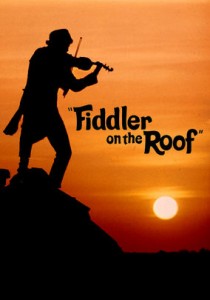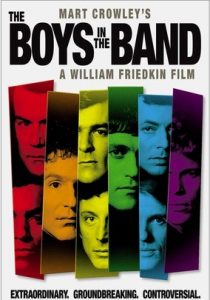Fiddler on the Roof-1971
Director Norman Jewison
Starring Topol, Norma Crane, Rosalind Harris
Top 250 Films #29
Scott’s Review #123
Reviewed July 21, 2014
Grade: A
Fiddler on the Roof is a fantastic musical from 1971 based on the popular stage version. It tells the story of a Russian Jewish family living in tumultuous times, both before and during the Russian Revolution.
The film has everything and is very well made, truly doing justice to the stage version. It contains dancing, drinking, festive parties, love, and sing-alongs. It also includes politics, hardships, and tragedy.
Led by the patriarch of the family, Teyve, played fantastically by Topol, he explains (often narrating directly to the audience, which is a goldmine in style) life in his Russian village with five daughters and no sons and an overbearing wife. They are a poor family and struggle to make ends meet.
They navigate life with the help of song and dance, dealing with situations such as romance, primarily focusing on the three oldest girls, and the political upheaval surrounding their country.
It is tough for a film version of a famous musical to be top-notch and even compare to the stage version, but the film is excellent- “Tradition”, “Matchmaker”, and “If I Were a Rich Man” immediately stick in the viewer’s head.
The film has a rich, earthy feel, with a predominance of brown and grey colors. Russian history is explored, lending it complexity and an educational quality, rather than merely providing a simple, feel-good experience. To put it simply, the story is layered and not one-note.
Politics, progressive thinking versus conservatism, and the generation gap are explored and the characters learn and adapt to a changing world, especially the parents.
One interesting aspect is the progressive onset of the Russian Revolution as it gradually drew closer.
Fiddler on the Roof is quite lengthy (179 minutes), but does not seem that long. This film (and play) is a marvel.
Oscar Nominations: 3 wins-Best Picture, Best Director-Norman Jewison, Best Actor-Chaim Topol, Best Supporting Actor-Leonard Frey, Best Scoring: Adaptation and Original Song Score (won), Best Sound (won), Best Art Direction, Best Cinematography (won)

